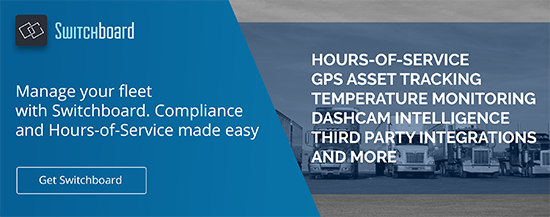As a commercial transportation provider, you've probably heard of CSA scores. But what are they, and how can you ensure they stay in the green zone? Here we explain CSA scores and provide you with some essential tips on how to maintain them.
What Are CSA Scores?
CSA stands for the Compliance, Safety, and Accountability program, implemented by the Federal Motor Carrier Safety Administration (FMCSA). CSA scores are a way to measure a motor carrier's safety and compliance with regulations. They're calculated based on data from roadside inspections, crash reports, and other safety-related information.
The CSA program categorizes safety violations into seven BASICs (Behavior Analysis and Safety Improvement Categories):
- Unsafe Driving: Violations related to speeding, reckless driving, and other unsafe driving behaviors.
- Hours of Service (HOS): Violations involving exceeding hours of service limits or failing to maintain proper records of duty status.
- Driver Fitness: Issues related to driver qualifications, medical certificates, and training.
- Controlled Substances and Alcohol: Violations involving drug or alcohol use by drivers.
- Vehicle Maintenance: Violations related to the maintenance and inspection of commercial vehicles.
- Hazardous Materials: Violations involving the improper handling of hazardous materials.
- Crash Indicator: Historical data on crash involvement.
Challenges of Low CSA Scores
- Limited Business Opportunities: While low CSA scores are beneficial, some shippers and brokers may view them skeptically. They might assume that extremely low scores are a result of data manipulation or non-reporting of incidents. This can potentially limit your access to certain business opportunities.
- Insurance Premiums: While low CSA scores can lead to lower insurance premiums, carriers with exceptionally low scores may be perceived as outliers. Insurance companies may question the accuracy of the data, potentially leading to increased scrutiny or premiums.
- Risk of Targeting: Law enforcement and regulatory authorities may scrutinize carriers with consistently low CSA scores to ensure they are not avoiding inspections or hiding violations. This can lead to increased attention during roadside inspections and audits.
- Competitive Disadvantage: Some carriers may intentionally maintain higher CSA scores by accepting violations or not reporting incidents, which could put carriers with genuinely low scores at a competitive disadvantage. This creates a dilemma for safety-conscious carriers.
- Potential Misinterpretation: Extremely low CSA scores might raise suspicion among stakeholders, who may wonder if safety measures are being compromised in pursuit of the lowest possible scores. Striking the right balance between compliance and safety is crucial.
How to improve your CSA Scores
To address potential concerns related to low CSA scores, carriers and drivers should be transparent and willing to provide evidence of their commitment to safety. This can include documentation of regular safety training, maintenance records, and a strong safety culture within the organization.
- Regular Vehicle Maintenance: Keep your vehicle in top-notch condition. Regularly inspect and maintain it to prevent Vehicle Maintenance violations.
- Stay Compliant with HOS Rules: Ensure you follow the Hours of Service regulations meticulously. Keep accurate records of your duty status.
- Safe Driving Habits: Practice safe driving at all times. Avoid speeding, aggressive driving, and distractions on the road.
- Driver Training: Continuously invest in driver training and education to improve Driver Fitness.
- Avoid Substance Abuse: Never drive under the influence of drugs or alcohol, and adhere to Controlled Substances and Alcohol regulations.
- Hazardous Materials Handling: If you transport hazardous materials, do so with utmost care, following all safety protocols.
- Prevent Crashes: Safeguard against accidents by practicing defensive driving and staying alert on the road.
- Address Violations Promptly: If you receive a violation, address it promptly, and take corrective actions to prevent future occurrences.
- Use Technology: Employ technology like telematics and electronic logging devices (ELDs) to track and improve compliance and safety. Switchboard provides technology that helps maintain your hours-of-service easily, and reduce driver error.
- Train Your Team: Ensure that your entire team, including drivers and support staff, is aware of safety regulations and best practices.
CSA scores are a critical aspect of the commercial trucking industry. Maintaining low scores is not only a matter of compliance but also a path to safety and success. By following these tips and making safety a top priority, you can keep your CSA scores in check and pave the way for a smoother and more prosperous journey on the road. Safe travels!
If you're looking for technology to improve your CSA scores, Switchboard provides an easy-to-use ELD, as well as digital DVIR maintenance platform that is proven to improve your CSA scores. Reach out to our team today.



.png)









